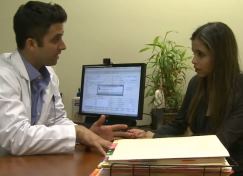
Every time the “rate this app” feature pops up on my phone, I feel a tinge of annoyance, but technology companies are clearly on to something. They ask for customer feedback constantly because they know what other industries are just catching onto: the people who use your service or product know best what’s working with it and what’s not. The health care system is starting to ask for feedback from customers, but it turns out the system might not be ready to hear it.
Patient-centered care has long been a buzzword in health care. The idea is that each patient needs a care plan that works especially for them and their life circumstances. And when it’s done well, patient-centered care seems to improve outcomes. At Center for Health Progress, we’re trying to take the concept of patient-centered care one step further. We believe patients and community members, especially those most affected by poor outcomes and health inequities, must be centered as experts in the design and transformation of the health care system. This means that, at a minimum, health care systems need to start asking their customers directly for feedback any chance they get, and their feedback needs to be trusted and addressed. It also means that potential customers of the health care system need to be engaged in program design and system-transformation efforts as expert consultants from the very beginning.
Over the last two years in Adams County, we did just this. In partnership with community clinics, and with research and advocate partners, we worked closely with patients and community members as they developed messages and communication tools that aimed to increase and improve conversations between patients and providers about the cost of health care. We then worked with the clinics to integrate the tools into their clinical workflows and tested their impact and effectiveness. Our research, published recently in the Annals of Internal Medicine, shows that the tools largely worked. After the tools were incorporated into the clinics, patients better understood what their care would cost and felt the tools improved the quality of care they received.
However, our findings also identified a challenge to patient-centered design efforts: patients and providers disagreed about the effectiveness of the tools. Patients who used the tools strongly agreed that they helped start conversations about cost of care. Providers disagreed. This key finding suggests that, despite our work to center patient expertise in health intervention design efforts, providers may not be ready or receptive to this type of change.
There are many reasons providers might be unreceptive to patient-designed interventions. One reason is differences in life circumstance and experiences between patients and providers that often play out across race and class lines. To be sure, white, economically secure, highly-educated professionals who currently hold nearly all of the power in the health care system, will always struggle to truly understand how their patients who don’t share similar privileges and power experience their products and services.
It’s clear that health care leaders and providers need to start asking their patients more directly how they can improve—and trusting their feedback. Patients also need to be integrally involved in program and service design, because they clearly have insights that can prove invaluable. For us to make progress toward a health care system that works for everyone, providers and health care leaders need to actively view patients and community members as experts, and they need to trust the interventions and tools they produce. If they do, someday our health care system could even earn a five-star rating!




